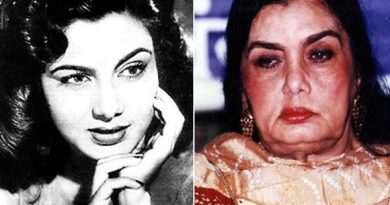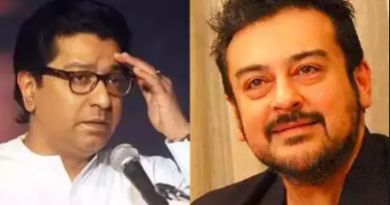Will post-pandemic Bollywood put more women in the cockpit, asks Anupama Chopra
[ad_1]
Will the pandemic give a leg-up to female narratives? I asked myself this as I watched two recent movies — Shakuntala Devi and Gunjan Saxena: The Kargil Girl, both biopics inspired by the lives of women who forged new paths.
Shakuntala Devi rode on the charm and acting prowess of Vidya Balan. Janhvi Kapoor shouldered much of the burden in Gunjan Saxena, playing India’s first female Air Force officer in combat. Both films were made for the big screen but premiered online, on the streaming platforms Amazon Prime and Netflix respectively.
That must have been disappointing for the makers, but the advantage is that neither was burdened by contests over box-office numbers. There were no conversations about Friday openings and the ability of the lead actors to get bums on seats. This has somewhat levelled the playing field. Thanks to OTT platforms, female-led films, irrespective of subject or budget, have the same shot at finding an audience as those with a male protagonist. Streaming is about story. Which is a welcome change from theatres, where male stars have a historical advantage.

Vidya Balan in a still from Shakuntala Devi.
In fact, since the pandemic began, we’ve seen a slew of Indian films and shows with strong female characters, starting with Mrs Serial Killer on Netflix in May. The film might have been sloppy but it did provide Jacqueline Fernandez with a titular role and the opportunity to face-off against Manoj Bajpayee.
This was followed by Bulbbul, which featured Tripti Dimri as a powerful avenging chudail; Aarya on Disney+Hotstar, in which Sushmita Sen makes a terrific return to the screen, as a woman forced to get involved in the drug trade after her husband is murdered; and Raat Akeli Hai, which featured a slew of strong women, played by fine actors such as Radhika Apte and Shivani Raghuvanshi. Even the violent, mostly masculine world of Paatal Lok featured stand-out female characters, particularly the dog-loving Dolly played by Swastika Mukherjee and Gul Panag as Hathiram Chaudhary’s wife, Renu.
Will the shift to streaming permanently alter audience tastes? Some filmmakers, including SS Rajamouli, say they will now be telling stories for a more sophisticated and demanding audience. Others, like Vishal Bhardwaj and Kabir Khan, seem certain that little will change. They believe that once the pandemic is over, it will be business as usual. In fact, in a recent interview, Kabir told me that since budgets will be much tighter when shooting resumes, it’s likely that producers will opt for safer bets — in other words, stars.

A still from Raat Akeli Hai.
But smaller budgets also mean more intimate, scaled-down films rather than extravaganzas, which might also benefit women. Women in film are used to working with less money — in a 2016 interview, Sonam Kapoor told me it was impossible to get a studio to pump the same sums into Veere Di Wedding as they were willing to invest in Dishoom, starring Varun Dhawan and John Abraham. Perhaps the natural talent of female filmmakers to make less look like more will be an advantage now.
Most importantly, since there are no box-office numbers, it’s harder for studio heads to reject women’s stories with the excuse that they don’t work. I hope at least a few projects that take artistic risks and are headlined by women will get green-lit before theatres reopen and we all become number-crunchers again. That would be a welcome silver lining.
Follow @htshowbiz for more
[ad_2]
Source link


